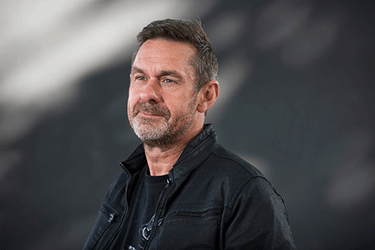 Award-winning journalist, author and former economics editor Paul Mason engaged the audience with his thought-provoking vision of the failure of capitalism and what the future could look like on day two of the CompTIA EMEA Member and Partner Conference in Bishopsgate, London. Mason followed CompTIA President and CEO Todd Thibodeaux, who addressed The State of the Industry, discussing innovation, challenges and the need for new talent.
Award-winning journalist, author and former economics editor Paul Mason engaged the audience with his thought-provoking vision of the failure of capitalism and what the future could look like on day two of the CompTIA EMEA Member and Partner Conference in Bishopsgate, London. Mason followed CompTIA President and CEO Todd Thibodeaux, who addressed The State of the Industry, discussing innovation, challenges and the need for new talent.
Mason opened by saying history is hitting us with a vengeance and while we are living in the most exciting period of technological advancement, it is also the worst economic period in 10 years. Mason referenced the economic downturn in 2008 viewed by many as a blip that would recover quickly, but this has not been the case resulting in an additional $57 billion dollars on global debt. Mason went on to say that the capitalist model we have used for 30 years (neo-liberalism) is struggling to cope.
Mason said one challenge we all face is that globally productivity gains have increased, but wages have not reflected this growth. He added that wages drive consumption and the desire to consume with lower wages increases debt and borrowing as people spend money they don’t actually have. The result; economies are using debt to fuel growth rather than wages, which in turn has driven down interest rates. This fall in rates creates additional problems. “If rates are low or flat lining, the profitable potential of an economy is poor, and creates a stagnation,” he said.
Mason feels that technological advances may also have prevented capitalism from adapting. He added that the early 20th century saw huge innovation such as the car, telephone and electricity and unlike this period in which lost jobs were replaced with new ones, we now automate work faster than we create new skilled jobs. Current research shows that by 2020, a staggering 47 percent of jobs could be automated. This potential lack of skilled jobs will have a negative effect as less money is reinvested into the economy.
Mason touching on automation posed the question: How do we deal with the unemployment resulting from automation? He suggested that the state may end up having to pay a universal basic income to subsidise people who find themselves without work, as well as providing cheap basic goods and services to support the unemployed.
Mason also discussed the changes that new data and information-based goods are going through. These goods, which that can be easily replicated and used by many, create a very different business model due to their ability to be copied by many, resulting in a decreasing value. He used the example of DNA genome sequencing that in a short time has gone from $100 million per full sequence to just $1,000. This same pattern is now seen with information-based goods such as storage and processing, whose pricing has dropped exponentially.
Further disruption is also being caused by the erosion of traditional organisational barriers, with our age of collaboration and access to free or low cost tools impacting on pricing.
The Future: Post-Capitalism is Possible
Mason alluded to the emergence of a new economy model, one that Silicon Valley and others are starting to take seriously. He added the future may result in fragmentation of economies to support the move from the current model of market and state to one that sees the addition of a non-market element. This new non-market is currently reflected by organisations such as Linux, Wikipedia, Apache and open-source applications led by communities, rather than the traditional business models. He added that these new collaborative institutions make it difficult to measure value and output in economic terms, so what output and value could be placed on Wikipedia?
So How Will This Affect the Tech Industry?
There is no need to panic and start planning for an apocalyptic future, as all three economic channels will continue to need technology. States and companies will still want to own and host data rather than public domains, but change is inevitable. Mason provided the example of the 1990s that saw big vendors and big companies selling products for high prices and floating on stock exchange. Now 9 out of 10 tasks/systems can be built for a low price or with free tools.
The result, companies will have to adapt and wrap value of their goods and services over the top of low value or free tools, that is a real shift from the 90’s. He closed his talk by reassuring the audience that this new model will have a greater effect on other industries and the IT industry is one that shouldn’t be too badly hit.

